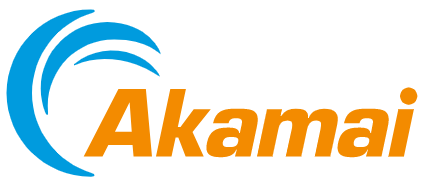How to Get a Free CDN: Top 7 Cheap CDN Services for 2026
How to Get a Free CDN: Top 7 Cheap CDN Services for 2026
1. LightCDN

LightCDN is a cost-effective and reliable CDN hosting provider under the reputable Kaopu cloud brand. Established in 2002, LightCDN's network strategy sets it apart from other platforms. The provider is committed to creating unique nodes that cater to access needs all over the world.
LightCDN has servers in many locations around the world, including Asia (Hong Kong, Japan, and Singapore), the Middle East (Dubai), Europe (Germany), North America (San Mateo and Washington), and South America (Brazil).
LightCDN Pricing
- New!! Support Free cdn offers
| Monthly Traffic | Monthly Price | Unit Price |
|---|---|---|
| 6TB | $126 | $0.021/GB |
| 25TB | $315 | $0.0126/GB |
| 50TB | $504 | $0.01008/GB |
LightCDN Features
- Free CDN services
- The global acceleration, unrestricted Pops
- Uniform global pricing, regardless of geography
- Unlimited HTTP(S) requests
- All functions free
- 24/7 Online after-sales support
- Below Market Price
2. Cloudflare

Cloudflare cdn is one of the best-known CDN providers. It comes with a free plan and no bandwidth restrictions. Therefore, this makes it one of the best free CDN providers for WordPress site.
They have more than 180 data centers around the world. This can prove helpful in improving the performance, speed, and security of your wordpress website.
Cloudflare Pricing
- Free plan- $0/month
- Pro plan- $20/month
- Business Plan- 200/month
CloudFlare Features
- Free Trial
- Comprehensive DDoS protection
- Mobile and automatic image optimization
- Easy setup
- Supports IPv4, IPv6, SPDY, and HTTP/2
- Offers Flan Scan-its lightweight network vulnerability checker
3. GoogleCloud

Google is one of the largest technology companies in the world, and the Google Cloud CDN is available to any user on a budget. Despite its low price, Google Cloud CDN provides a reliable CDN service with its 90 data centers around the world.
The Google Cloud CDN service has more than 100 pops in North and South America, Europe, Asia, Africa, and Australia.
GoogleCloud Pricing
- Cache egress – $0.02/GB- $0.08/GB
- Cache fill – $0.04/GB- $0.06/GB
- Cache invalidation – $0.005/10000 invalidations
- HTTP(S)- $0.0075/10000 requests
GoogleCloud Features
- Support for static and dynamic content
- Supports both HTTP/1 and HTTP/2 protocol
- Offers free SSL for enhanced security
- Seamless integration with Google’s cloud platform
4. Amazon CloudFront

Amazon CloudFront is a popular CDN for sites offered by AmazonWeb Services, especially because of its speed.
Amazon CloudFront Pricing
- AWS Client The VPN terminal node is associated with 0.10 USD/ hour
- AWS Client VPN connection 0.05 USD/ hour
Amazon CloudFront Features
- Amazon web services
- Integrated with AWS
- Instant deliverability of personalized and dynamic content
- They have hundreds of edge locations located around the globe.
- better for programmers or developers instead of beginners
5. Akamai

Akamai is a high-security CDN provider. It provides all basic and advanced security features, including API and application security, remote work security, account takeover protection, DDoS protection, and more.
Akamai Pricing
- Pricing is not mentioned on the website.
Akamai Features
- Adaptive media delivery
- Media Analytics
- Media services live
6. Fastly

Fastly is a CDN provider that sells itself for its high configurability. Here, customers can take advantage of various support for video caching. You can also use low-level controls to customize how the content is served for people working with HTTP headers.
Fastly servers locations are distributed in North and South America, Europe, Africa, Asia, Australia, and New Zealand.
Fastly Pricing
- Free Plan- $0
- Low Volume Traffic- $0.12/GB
- High Volume Traffic- $0.08/GB
- APAC Traffic (Below 10TB)- $0.19/GB
- APAC Traffic (Above 10TB)- $0.14/GB
- LATAM Traffic (Below 10TB)- $0.28/GB
- LATAM Traffic (Above 10TB)- $0.24/GB
Fastly Features
- Free service
- Offers cache control
- Offers SSL certificates for advanced security
- Real-time logs for web activity analysis hence faster decisions
- Offers DDoS mitigation, Cloud security, and TLS encryption
7. Azure CDN

Like AWS, Microsoft offers content delivery capabilities through its Azure cloud infrastructure. It is primarily used for website development and supports media use cases such as online streaming, gaming, and more.
It owns POP in North and South America, Europe, Africa, India, Southeast Asia, the Middle East, Australia, and New Zealand. More locations are available through a partnership with Akamai.
Azure CDN Pricing
The cost of using Azure CDN depends on where you're using it, which features you need, and how much content you're delivering through the Microsoft Rules engine.
Azure CDN Features
- Strong global reach
- Easy and user friendly
- Secure and stable
- Heavy on the pocket
FAQ
What Is a Content Delivery Network (CDN)?
A Content Delivery Network (CDN) is a global network of servers that work together to deliver web content to users in the most efficient way possible. When a user requests a piece of content, such as an image or video, the CDN routes the request to the server that is geographically closest to the user. This helps reduce the distance the data has to travel, which can significantly improve page load times. Additionally, CDNs help distribute the load of traffic, which can prevent website crashes during traffic surges.
CDNs also offer enhanced security features, such as SSL certificates, to protect website traffic and user data from interception. Some CDNs even integrate open source technologies to further improve website security.
When choosing a CDN, it is important to consider factors such as server locations and network coverage to ensure that your website's content is delivered quickly and efficiently to users all over the world.
How does a CDN work?
A CDN is a network of servers that work together to deliver web content to users. When a user requests a piece of content, such as an image or video, the CDN routes the request to the server that is geographically closest to the user.
This helps reduce the distance the data has to travel and can result in faster load times. The CDN also helps distribute the load of traffic, which can help prevent website crashes. Overall, CDNs can help improve the speed, scalability, and security of websites.
How does a CDN affect the speed of your website?
A Content Delivery Network (CDN) is a group of servers that show website content based on the user's location, the website's origin, and a content delivery server. Using a CDN can make websites load faster and improve the user experience.
This is possible since the CDN obtains information from a server that is closer to the user, rather than from one that is farther away. In addition, CDNs can also help decrease bandwidth usage, prevent website crashes, and improve website security by providing protection against DDoS attacks. It is highly recommended that websites with a global audience or high traffic utilize a CDN to enhance their performance and improve user experience.
What are the benefits of using CDN?
Some benefits of using a CDN include faster website load times, improved website performance, increased website reliability, decreased bandwidth usage, improved website security, and better user experience.
CDNs can also help prevent website crashes by distributing the load of traffic across multiple servers. Additionally, CDNs can improve website SEO by improving website speed and reducing bounce rates.
What is the difference between a CDN and web hosting?
Web hosting is where your website is stored on a server that serves it to visitors when they request it. A CDN is a network of servers that store your website's content and serve it to visitors from the server closest to them.
Web hosting delivers website content to visitors, while a CDN optimizes content delivery to visitors.
What is an open source CDN?
An open source CDN is a content delivery network that uses open source software to deliver web content to users. This means that the source code of the CDN software is freely available to the public, allowing developers to modify and improve the software as needed.
What types of content can be delivered through a CDN?
A CDN can deliver a variety of content types, including static and dynamic content. Static content includes images, videos, and other files that do not change frequently. Dynamic content, on the other hand, includes content that changes frequently, such as news articles and social media updates.
How do I choose the right CDN for my website?
When choosing a CDN for your website, you should consider factors such as the CDN's reliability, performance, security, and pricing. You should also consider the CDN's network coverage, features, and support.
Some of the top CDNs to consider include LightCDN, Cloudflare, GoogleCloud, Amazon CloudFront, Akamai, Fastly, and Azure CDN. Each of these CDNs has its own unique features and benefits, so it's important to do your research and choose the one that best meets your website's needs.
How much does a CDN cost?
The cost of a CDN can vary depending on the provider and the level of service you require. Some CDNs offer free plans, while others charge a monthly or annual fee. Pricing may also be based on factors such as bandwidth usage, storage, and data transfer.
It's important to carefully review a CDN's pricing plans and features to determine which plan is right for your website and budget.
Can a CDN improve website security?
Yes, a CDN can improve website security by providing protection against DDoS attacks, bot traffic, and other malicious activity. CDNs can also provide SSL encryption to ensure that website traffic is secure and protected from interception.
Additionally, CDNs can help keep website content safe by hiding the website's origin server and storing website content in multiple locations. This makes it more difficult for hackers to access and compromise website content.